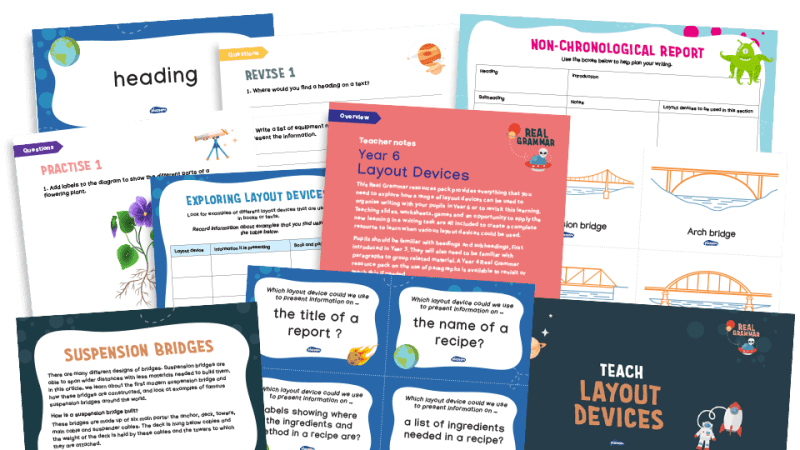World Book Day ideas for secondary schools – Resources for 2026
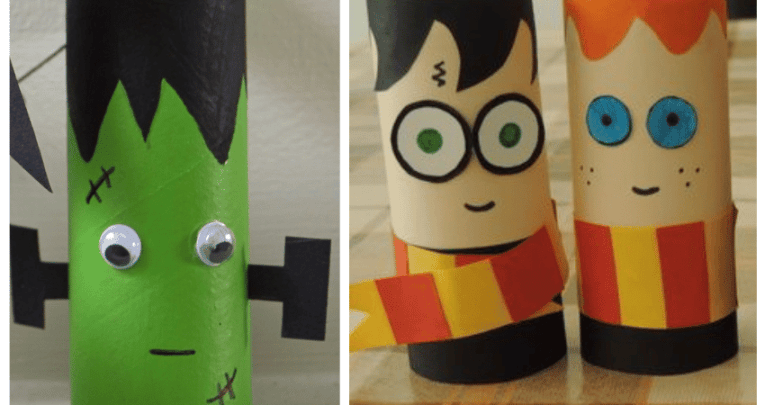
The best resources, ideas and downloads to help you celebrate World Book Day this March…

- by Teachwire
- Classroom expertise and free resources for teachers
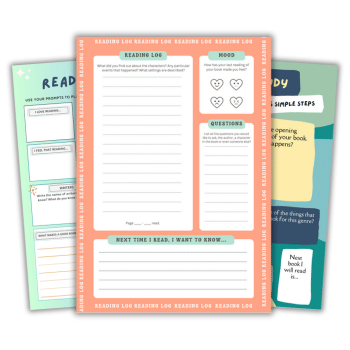
World Book Day isn’t just for primary and early years, and any excuse to get students reading is a valid one. It doesn’t have to involve dressing up, either. Get your KS3 and KS4 pupils involved on 6th March with these World Book Day ideas for secondary schools…
Table of contents
World Book Day ideas for secondary schools
Start a reading journal
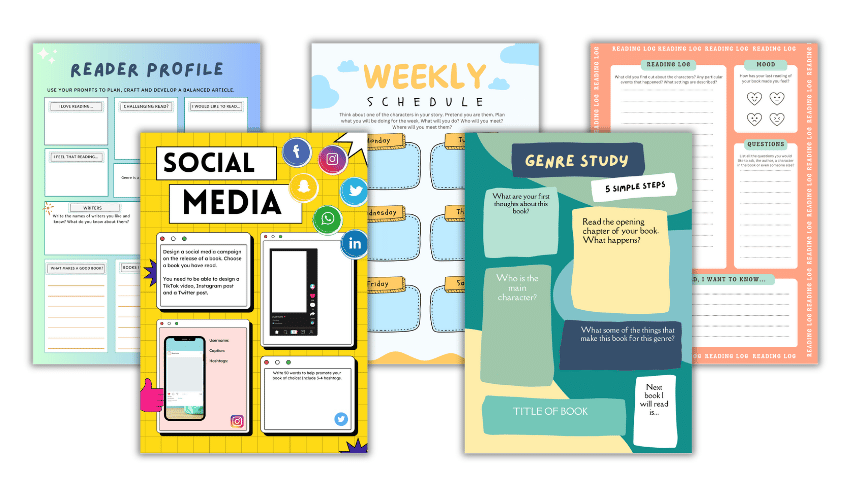
This lovely reading journal was created by English, media and film studies teacher Meera Chudasama. There’s space for pupils to record the books they’re reading, but there’s also lots of other reading activities to try.
These include designing your own book cover, creating a book launch social media campaign and writing a diary entry from a character’s point of view.
Read more about how Meera put it into action in her own classroom.
World Book Day official secondary resources
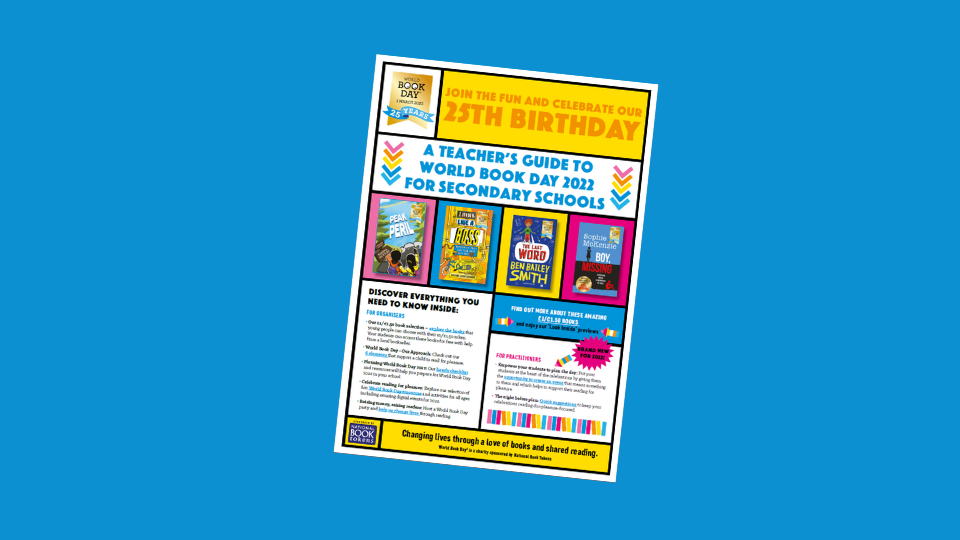
One obvious place to look for World Book Day ideas for secondary schools is on the official World Book Day site. Here you’ll find lots of resources, including activity ideas, bunting, posts and more.
Decorate your doors
KS3 are most definitely ready for World Book Day! As you can see, learners and staff have done an amazing job. #ThisIsAp #WorldBookDay #Community pic.twitter.com/SoTcKlUROJ
— River Tees Middle (@RTMATmiddle) March 2, 2022
Host a competition among classes or form groups to turn doors around school into the best book cover recreation.
Host a Battle of the Books
Set up a competition where each tutor group needs to pick and champion a particular book in a ‘Battle of the Books’. Challenge each class to pitch their book in a live event on World Book Day.
KS3 digital library
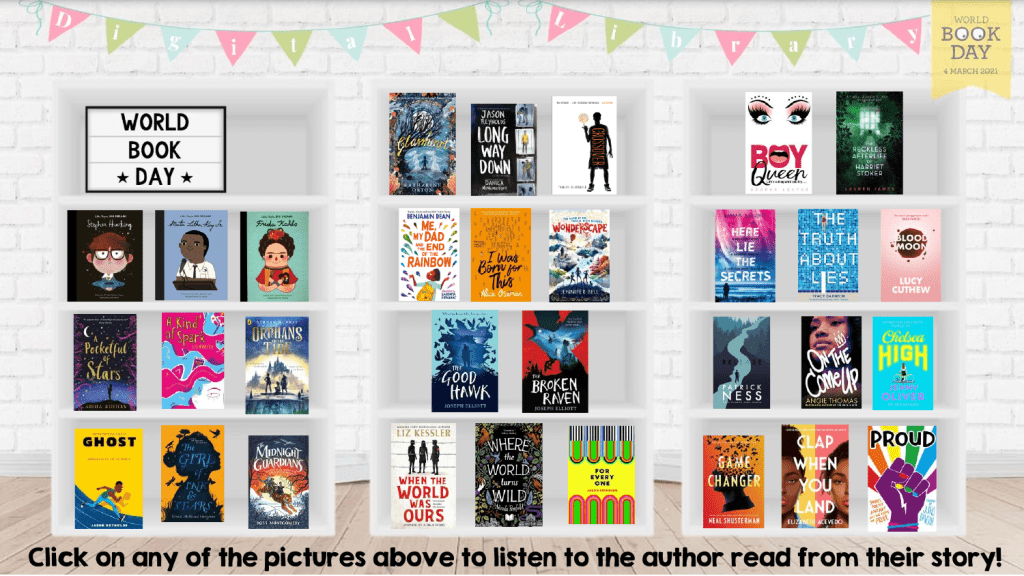
Teacher Steph has created an excellent KS3 digital library PDF. Click on each book cover to be taken to a video of the author reading from the story on YouTube.
Toilet roll characters for World Book Day
World Book Day toilet roll character competition! All details on TEAMS for KS3 #WorldBookDay #25years #Competition #WBD2022 pic.twitter.com/d825TvJpmm
— Argoed HS English (@Argoed_English) February 17, 2022
World Book Day ideas for secondary schools don’t need to be complicated. Keep things cheap and cheerful with a fun World Book Day toilet roll character competition.
Interactive PDF and World Book Day quiz
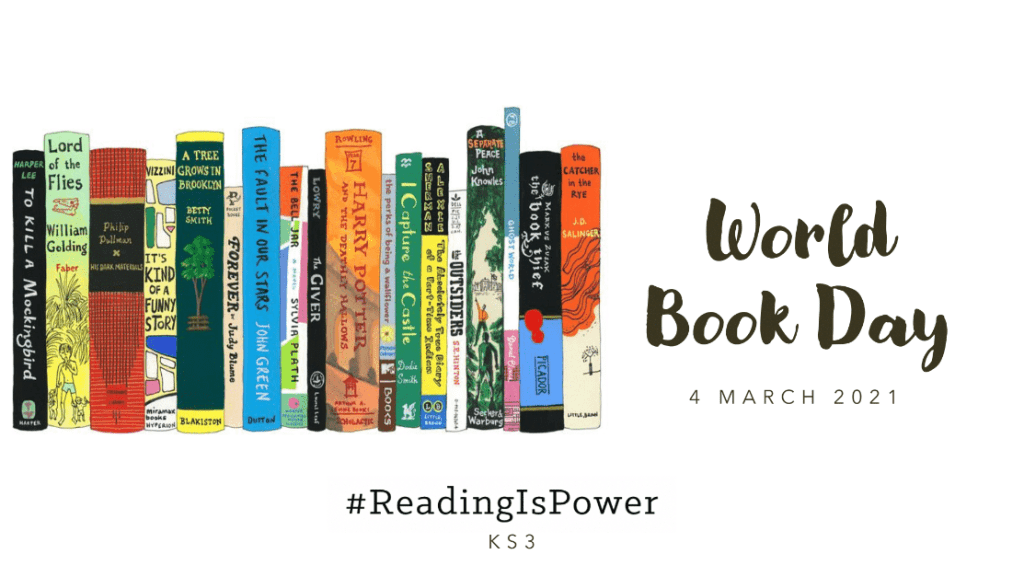
This interactive PDF of World Book Day activities and extracts for KS3, originally created in 2021, was put together by assistant head of English @MissHBurke. It contains reading recommendations, author spotlights and useful links.
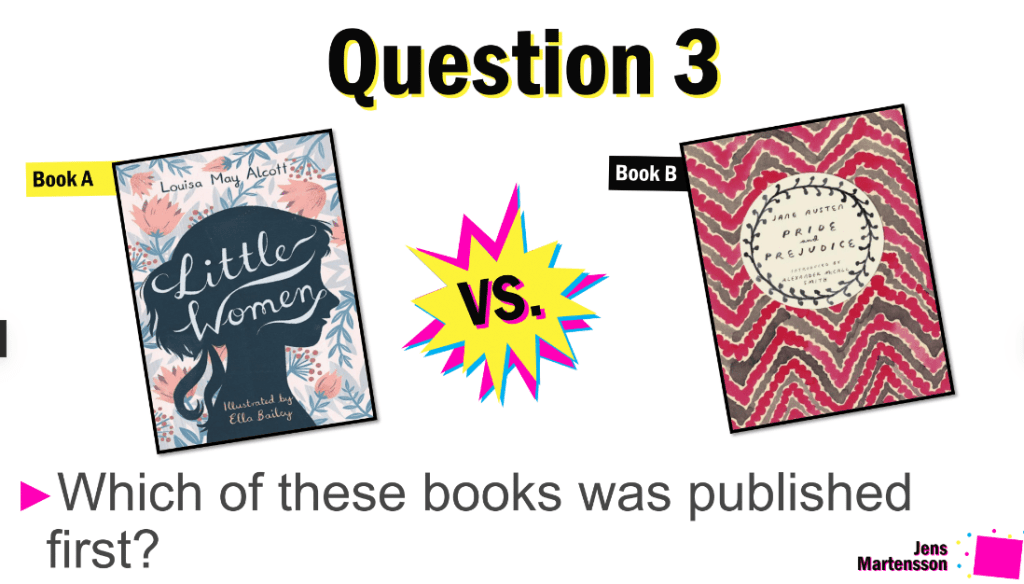
She has also created a fantastic World Book Day quiz PowerPoint that will test your most keen bookworms.
Write mystery stories
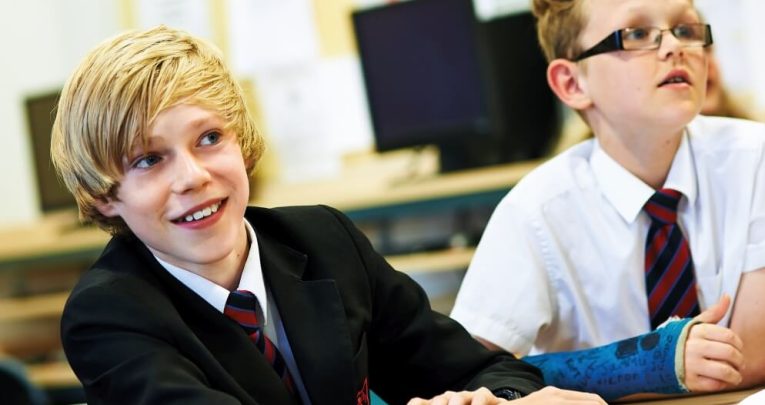
Use author Lisa Thompson and teacher Stuart Pryke’s lesson plan on how to write mystery stories with your English class this World Book Day. Pupils need to write a story about a guest who has gone missing from a hotel room…
Write acrostics, haikus and reverse poems
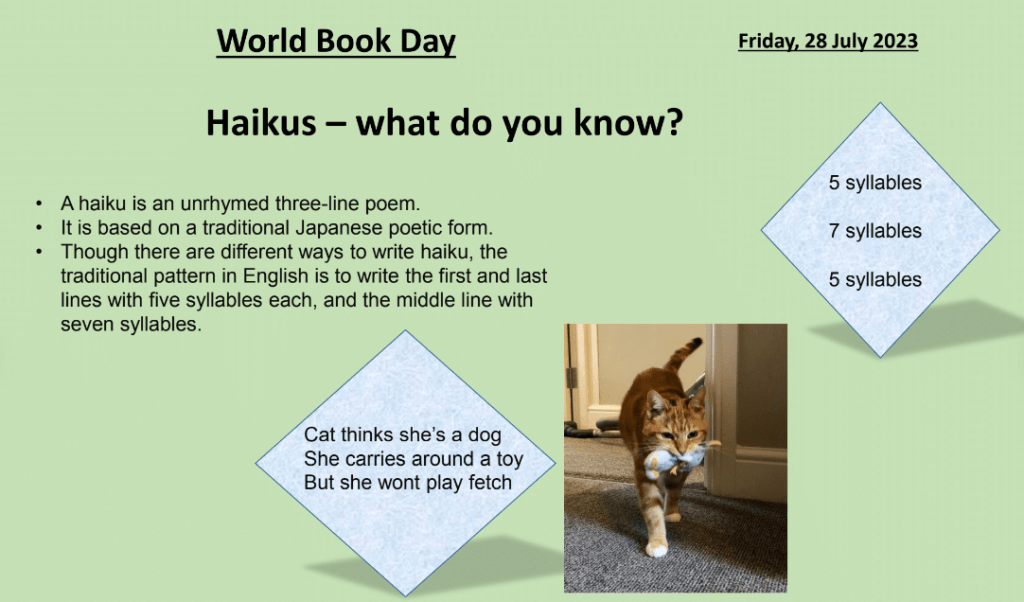
Use this one-lesson PowerPoint and worksheet from teacher Rachel Crosby to celebrate poetry on World Book Day. Students are tasked with writing three different poems: an acrostic, a haiku and a reverse poem.
Year 7 English worksheets
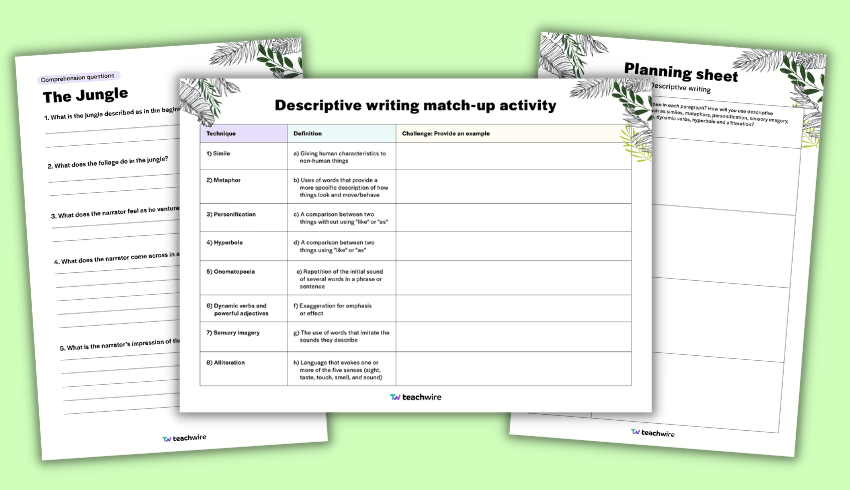
These free downloadable Year 7 English worksheets are perfect for KS3 English lessons and will take two lessons to complete.
Use the descriptive text, themed around the jungle, as a prompt for descriptive writing. Then use the included worksheets to help students create their own piece of creative writing.
Year 8 English worksheets
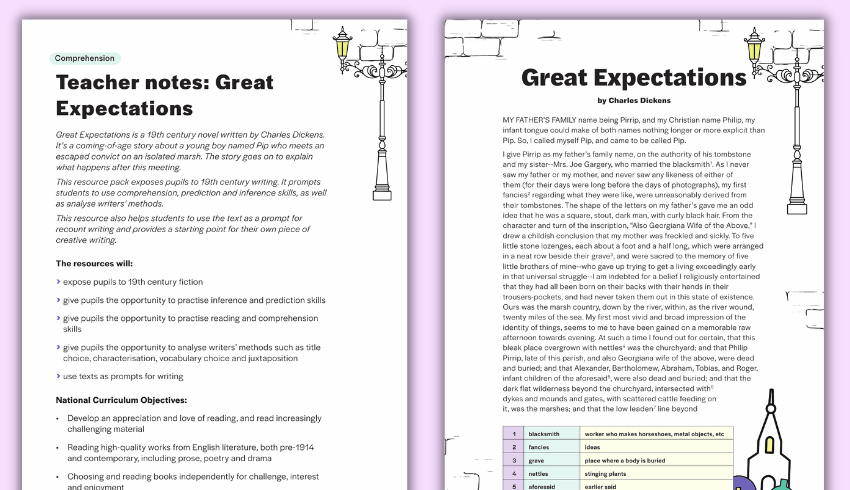
Expose pupils to 19th century writing and prompt students to use their comprehension, prediction and inference skills with these Year 8 English worksheets.
This two-lesson plan is based around Great Expectations by Charles Dickens and concludes with students writing a piece from Pip’s point of view.
How to get your students reading for pleasure

Meera Chudasama looks at how you can turn reading-averse students into avid bookworms desperate to see what the next page holds…
Having started the last academic year with a supported set, I saw for myself how some would drag their feet in English lessons. On the other hand, others had a distinct spring in their step.
Even more obvious was how the ten minutes of silent reading we did at the start of the lesson would be accompanied by various moans and groans.
The class TA and I therefore decided to investigate the relationship these Y7 students actually had with reading. We reasoned that it was the teacher’s responsibility to, as Rosenblatt put it:
“Foster fruitful interactions – or more precisely, transactions – between individual readers and individual literary works”
Setting targets
The targets we set were therefore as follows:
- Help students find books they could engage with
- Challenge students’ reading abilities
- Try a range of different reading strategies
- Utilise multimedia platforms for source material
Library lessons
Our fortnightly library lessons already afforded students the time to read independently, be quizzed on Accelerated Reader (AR) tests and exchange or return any borrowed books.
After observing Y7 during these library lessons, I discovered that reading to them was either a chore they needed to drag themselves through, or an activity they already knew how to do and didn’t need to get any better at.
Given that their reading diets stretched from Jeff Kinney’s Wimpy Kid series to as far as Goosebumps but barely any further, it was a class that had a real resistance to anything one could describe as ‘challenging reads’ – and all the engaging and enthralling experiences that might follow. My mission was set. I was ready.
Taking into consideration each student’s emotional attachments to reading, any habitual reading practices and SEND details, where applicable, I wanted to ensure our students could feel supported and secure ahead of their reading adventure.
Making changes
Change one was to introduce weekly library lessons that would include the following:
- Kindle-based reading in small groups, guided by myself or the TA
- One-to-one reading with either myself or the TA
- Playing ‘Dungeons & Dragons’ as a class, guided by the school librarian
- ‘Book Buzz’ events led by students’ own book selections
- Class discussions about specific books
For many students in this particular class, the word ‘reading’ effectively referred to an overwhelming challenge of having to decode and comprehend. This was while simultaneously understanding and connecting with various characters, ideas and narratives. In many ways, it was an uphill battle.
Nevertheless, we persisted. After pupils took the AR quizzes we supported and guided them through the process of choosing the best books for them. This included one they could borrow for pleasure, and another that would appropriately challenge their reading level.
Revolutionary access
The library soon became our hub for learning about how be creative, how to navigate books better, and how authors wrote in different contexts.
With our significant (and growing) proportion of children with English as a second language, I wasn’t surprised to see one particular addition to the library being welcomed with open arms – our use of the ePlatform ebooks distribution service.
This is a website with a supporting app that’s accessible to students both in school and at home. It enabled our students to access literature in English and many other languages. They could also choose a range of different fonts and display options or listen to audiobooks.
The students were able to change the settings to suit their particular reading needs. They could also try samples of books that interested them and have books read to them out loud.
ePlatform proved to be revolutionary in how our Y7 accessed literature thereafter. After just one lesson, we soon had students reading works written in Tamil, Swedish and Russian.
“ePlatform proved to be revolutionary in how our Y7 accessed literature”
Before long, it wasn’t just us teachers encouraging reading for pleasure. It was actually coming from the students themselves.
That’s because our students were learning just how enjoyable reading could be, and were rapidly growing in their curiosity. For them, the act of reading had became an habitual community practice.
Subsequent parents’ evenings allowed me to consolidate the reading students were doing in the classroom and library with the reading they were doing alongside loved ones at home.
Reading logs

Tears, fears, cheers – our Y7 students displayed a host of emotions when we first introduced a reading journal, and when we announced at the start of their second term that we were giving each student a spelling book.
For our second change we mandated that students had to read for at least 20 minutes each day. We asked them to record:
- title of the book
- page numbers read
- any details in their books that they found especially interesting
“For our second change we mandated that students had to read for at least 20 minutes each day”
At first, many students in the class struggled with the challenge of reading for a total of 20 minutes. To them, this felt like a lifetime.
This was after the TA and I decided to up the requirement from ten minutes a day. With this challenge set, however, myself and the TA vowed to also read 20 minutes a day ourselves. We ended up sending each other pictures of us reading!
Writing to an author
Alongside the reading log, I wanted to find ways of encouraging reading via different means and in different formats. I consulted the school librarian and decided on using a class reader from outside the curriculum with the aid of a visualiser.
I wanted to show students that reading could help them empathise with characters, better express their own emotions and grow to be curious. As a class, we eventually chose to read Seven Ghosts by Chris Priestley.
I dedicated the final lesson of the week to reading an additional portion of the book. Using the visualiser, I read Seven Ghosts. Throughout, I regularly stopped to check what students remembered about the characters, what they felt might happen next and so on.
I wanted these questions to help them develop a real connection with the book, rather than solely get them achieving a particular progression level.
When it emerged that the students were unfamiliar with discussing characters, events and narratives, my aim then became one of helping them to ‘‘Explore connections between personal knowledge and the text, and to create their own understanding jointly through language” (Miller, 2016: 291).
Igniting conversations
The experience of reading Seven Ghosts ignited conversations in class about characters, events, imagined narrative endings and much more.
After we’d finished reading it, I tweeted Chris Priestley. He gave me details about how the students could write him a letter.
@crispriestley Thank you for such a wonderful read. Year 7s have thoroughly enjoying reading this book #together.
— Meera Chudasama (@MeeraChudasama) February 24, 2023
Could they email and write to you?#WritingForPurpose#TeamEnglish pic.twitter.com/QoK13dfvH5
Some wrote alternative narrative endings; some reimagined its characters, while others simply expressed their appreciation for the book and the story. What united the letters is that they were all bursting with engagement.
“What united the letters is that they were all bursting with engagement”
This activity duly became a purposeful, real and important writing opportunity. It compelled the students to draft and rewrite their letters with care and precision and was a very different writing activity to those that teachers had set these students previously.
This experience of reading and overseeing a follow-up writing activity using a class reader from outside the curriculum reaffirmed for me the freedom that comes with teacher autonomy.
I finally witnessed a level of engagement among the students that would go on to motivate and inspire them to read a breadth of books that was well outside their natural comfort zones.
Meera Chudasama is an English, media and film studies teacher with a passion for design and research. She has developed course content for the Chartered College of Teaching.
Browse more World Book Day activities, including ideas that have worked well in other schools.







